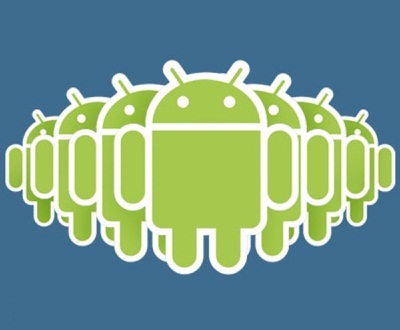Google: Android Activations Top 900,000 per day

Google’s Android director Andy Rubin has boasted of Android’s activation success, while denying he is planning to leave the company
Google’s Android leader Andy Rubin took to Twitter to brag about the success of the open-source operating system, boasting that there are more than 900,000 activations of Android per day.
In what could be seen as an effort to steal some of Apple’s thunder ahead of their Worldwide Developers Conference (WWDC) this week, Rubin also used the message to deny rumours that he was leaving the company. “No plans to leave Google,” he Tweeted. “Oh, and just for meme completeness – there are over 900,000 android devices activated each day :-).”
CloudCar startup?
Robert Scoble, a tech blogger who recently posted photos of Google’s Sergey Brin wearing the company’s Project Glass spectacles, first floated the rumour concerning Rubin’s departure. Rubin, as it turns out, is apparently not leaving Google to head a startup company called CloudCar. Scoble later updated his posting to reflect Rubin’s denial.
 Along with Apple, its main competitor in the mobile device space, Android and iOS account for 82 percent of the overall smartphone market, according to IDC. Android’s total market share for the quarter was 59 percent, compared with 36.1 percent a year ago, while iOS claimed a 23 percent share, up from 18.3 percent, as Apple boosted shipments from 18.6 million units to 35.1 million.
Along with Apple, its main competitor in the mobile device space, Android and iOS account for 82 percent of the overall smartphone market, according to IDC. Android’s total market share for the quarter was 59 percent, compared with 36.1 percent a year ago, while iOS claimed a 23 percent share, up from 18.3 percent, as Apple boosted shipments from 18.6 million units to 35.1 million.
Of the 90 million Android smartphones that shipped, 45.4 percent were from Samsung, the world’s largest mobile phone manufacturer.
With the help of a rapidly growing Chinese market, which will represent a quarter of all Android phone shipments, the platform is set to dominate the smartphone market through 2017, according to a May report by Ovum.
Slower growth
The company’s report said it expects Android to hold 48 percent of the smartphone market by 2017, while growing at a slower pace than it has recently. In 2011, Android’s share jumped to 44 percent, up from 2010’s 17 percent.
There is one area where iOS holds a distinct lead over Android, however, and that’s when it comes to application development. A report from Flurry Analytics found that for every 10 apps that developers build, roughly 7 are for iOS.
Part of the reason has to do with the fragmentation that comes with Android, which is offered on a huge array of mobile devices. Apple’s iOS runs only on the iPad and iPhone, which allows developers to more easily create applications. With Android, the report noted, devices, as well as firmware, contributed to fragmentation.
Are you an expert on social networks? Take our quiz.